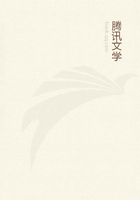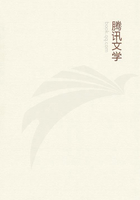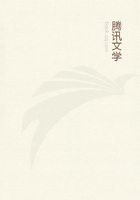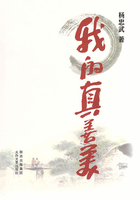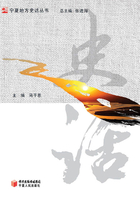SAINTLINESS
The last lecture left us in a state of expectancy. What may the practical fruits for life have been, of such movingly happy conversions as those we heard of? With this question the really important part of our task opens, for you remember that we began all this empirical inquiry not merely to open a curious chapter in the natural history of human consciousness, but rather to attain a spiritual judgment as to the total value and positive meaning of all the religious trouble and happiness which we have seen. We must, therefore, first describe the fruits of the religious life, and then we must judge them. This divides our inquiry into two distinct parts. Let us without further preamble proceed to the descriptive task.
It ought to be the pleasantest portion of our business in these lectures. Some small pieces of it, it is true, may be painful, or may show human nature in a pathetic light, but it will be mainly pleasant, because the best fruits of religious experience are the best things that history has to show. They have always been esteemed so; here if anywhere is the genuinely strenuous life; and to call to mind a succession of such examples as I have lately had to wander through, though it has been only in the reading of them, is to feel encouraged and uplifted and washed in better moral air.
The highest flights of charity, devotion, trust, patience, bravery to which the wings of human nature have spread themselves have been flown for religious ideals. I can do no better than quote, as to this, some remarks which Sainte-Beuve in his History of Port-Royal makes on the results of conversion or the state of grace.
"Even from the purely human point of view," Sainte-Beuve says, "the phenomenon of grace must still appear sufficiently extraordinary, eminent, and rare, both in its nature and in its effects, to deserve a closer study. For the soul arrives thereby at a certain fixed and invincible state, a state which is genuinely heroic, and from out of which the greatest deeds which it ever performs are executed. Through all the different forms of communion, and all the diversity of the means which help to produce this state, whether it be reached by a jubilee, by a general confession, by a solitary prayer and effusion, whatever in short to be the place and the occasion, it is easy to recognize that it is fundamentally one state in spirit and fruits. Penetrate a little beneath the diversity of circumstances, and it becomes evident that in Christians of different epochs it is always one and the same modification by which they are affected: there is veritably a single fundamental and identical spirit of piety and charity, common to those who have received grace; an inner state which before all things is one of love and humility, of infinite confidence in God, and of severity for one's self, accompanied with tenderness for others.
The fruits peculiar to this condition of the soul have the same savor in all, under distant suns and in different surroundings, in Saint Teresa of Avila just as in any Moravian brother of Herrnhut."[143]
[143] Sainte-Beuve: Port-Royal, vol. i. pp. 95 and 106, abridged.
Sainte-Beuve has here only the more eminent instances of regeneration in mind, and these are of course the instructive ones for us also to consider. These devotees have often laid their course so differently from other men that, judging them by worldly law, we might be tempted to call them monstrous aberrations from the path of nature. I begin therefore by asking a general psychological question as to what the inner conditions are which may make one human character differ so extremely from another.
I reply at once that where the character, as something distinguished from the intellect, is concerned, the causes of human diversity lie chiefly in our differing susceptibilities of emotional excitement, and in the different impulses and inhibitions which these bring in their train. Let me make this more clear.
Speaking generally, our moral and practical attitude, at any given time, is always a resultant of two sets of forces within us, impulses pushing us one way and obstructions and inhibitions holding us back. "Yes! yes!" say the impulses; "No! no!" say the inhibitions. Few people who have not expressly reflected on the matter realize how constantly this factor of inhibition is upon us, how it contains and moulds us by its restrictive pressure almost as if we were fluids pent within the cavity of a jar. The influence is so incessant that it becomes subconscious. All of you, for example, sit here with a certain constraint at this moment, and entirely without express consciousness of the fact, because of the influence of the occasion. If left alone in the room, each of you would probably involuntarily rearrange himself, and make his attitude more "free and easy." But proprieties and their inhibitions snap like cobwebs if any great emotional excitement supervenes. I have seen a dandy appear in the street with his face covered with shaving-lather because a house across the way was on fire; and a woman will run among strangers in her nightgown if it be a question of saving her baby's life or her own. Take a self-indulgent woman's life in general. She will yield to every inhibition set by her disagreeable sensations, lie late in bed, live upon tea or bromides, keep indoors from the cold. Every difficulty finds her obedient to its "no." But make a mother of her, and what have you? Possessed by maternal excitement, she now confronts wakefulness, weariness, and toil without an instant of hesitation or a word of complaint. The inhibitive power of pain over her is extinguished wherever the baby's interests are at stake. The inconveniences which this creature occasions have become, as James Hinton says, the glowing heart of a great joy, and indeed are now the very conditions whereby the joy becomes most deep.

